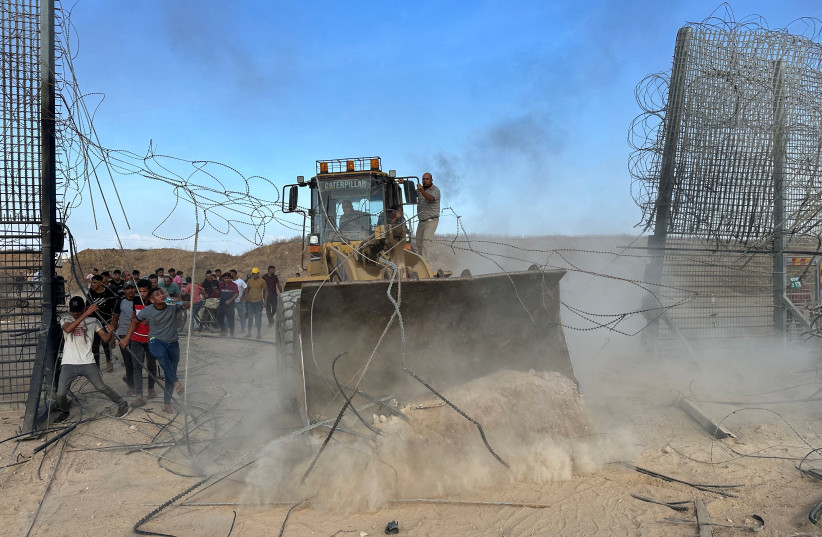Radio operators from the IDF's elite 8200 intelligence unit have been the focus of criticism and public attention for the past three months since the October 7 massacre.
They are perceived as serving in the largest intelligence gathering agency in Israel, if not in the Middle East, who heard long before October 7 about Hamas's capabilities and intentions to launch a murderous attack on Israeli citizens, but in practice, failed to emphasize in the senior ranking officials the degree of urgency and Hamas's readiness for war.
Warnings of attack were mostly ignored
A particularly prominent case, published for the first time in Walla!, is that of the 8200 officers who, for many months before the war, insisted on putting the focal point on the preparations of Hamas's military wing for an attack deep into the State of Israel far beyond the Gaza border settlements.
She shed light on their wish to use violence and even cruelty with the backing of senior religious officials who wrote fatwas purposefully for the mission, the involvement of senior officials in Hamas's military wing for preparations, and the extreme attention to details right under the eyes of IDF lookouts and intelligence officials.
The officer in question did manage to set into motion some new thinking patterns and active strategies in the intelligence community but was mostly ignored.

Listening to the brutal attacks
From the early hours of October 7 and the departure of the Nukhba terrorists for the brutal attack and the destruction of the communities and the outposts, the mission of the wireless operators of the 8200 unit, who listened to all the stages of the attack and what followed, became very difficult and complex to carry out, which according to them "shook the soul and caused the wireless operators to break down. Some of them took time to digest what they heard."
The reservists claim that what the operators heard in the first few days corresponded well with the estimates and plans revealed by the 8200 officers, which increased the frustration in the unit. The reservists who reinforced the various units from the first day said in closed circles that one of their prime tasks was not only to listen to what was happening in the Gaza Strip but to support the regular soldiers in the first days when they heard the stories of the horror, which was "a huge mental challenge".
The reservists also added that the challenges in researching and analyzing the horror stories in real-time, which includes reports, testimonies, orders, stories, and critical pieces of information, continued long after October 7, up until now, as the IDF searches for "golden pieces of information" in the hunt for senior members of the military and political wing of Hamas, and every detail about the hostages.
Military's further activities to locate perpetrators of the massacre
As part of in-depth intelligence research, the IDF is conducting backward research and analyzing recordings in order to locate those involved in the massacre and kidnapping.
Recently, ministers Benny Gantz and Gadi Eisenkot visited the unit and listened to the activities of the operators and of the mental health agencies that provide assistance and support, including individual therapy. "It is important for the public to know that even these days, the task of the operators is no less complex. It is difficult. It is very challenging for the younger generation and also for reservists, who find it difficult to leave the task and return to their routine. There are those who leave at the end of the shift, break down, cry, and return."
